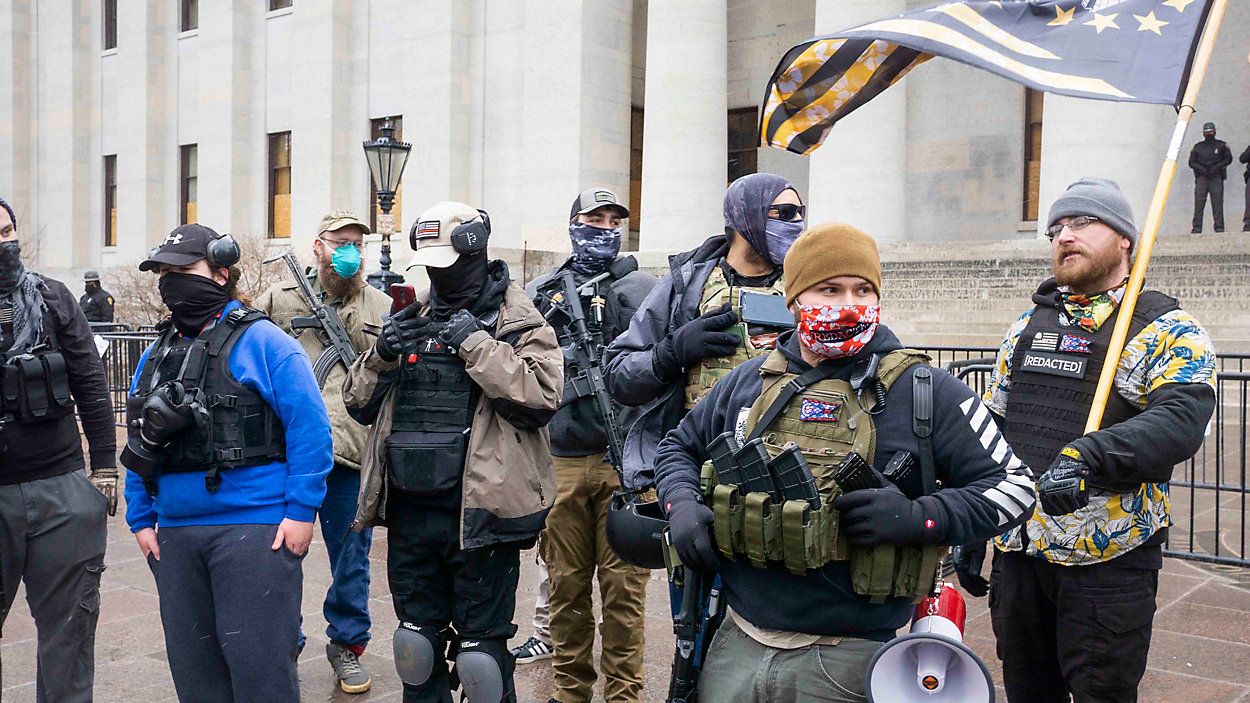OHIO — Starting Tuesday, legal gun owners will no longer have to retreat from a situation before hurting or killing someone in self-defense.
Senate Bill 175, commonly known as the "stand your ground" bill, was signed by Gov. Mike DeWine on Jan. 4 after hinting he would veto it earlier on in 2020.
The bill has gained praise and criticism from both lawmakers and the public. While supporters say the bill will give protections to those caught in dangerous situations, opponents say it could increase gun deaths and create problems for people of color.
"Duty of retreat," which means a person must attempt to retreat from the situation before engaging in violence, was created in 2008. Prior to the stand your ground bill, deadly force in terms of self-defense was allowed so long as the one claiming self-defense didn't cause the altercation, believed they were in harm's way, or were on their property, such as in their home or in their car.
The new law has some of the same principles though as the old law. First, the person who acted in self-defense must not have started the altercation. They must prove that they were in fear of their life or sustained injury that made them respond in the way they did. They also must be a legal gun owner.
Ultimately, it will be up for the courts to decide whether the person acted in self-defense.
Buckeye Arms Association commended DeWine for signing the bill, saying in a Jan. 4 statement, "While this bill changes one technicality in Ohio law, it does not change the near universal and well-established standard for use of lethal force, nor does it give criminals a free pass to commit violent crime."
But lawmakers like Dayton Mayor Nan Whaley and Akron Rep. Emilia Sykes condemned the bill.
Sykes said those supporting the bill are "cowards," and Whaley reminded the governor of the 2019 Oregon District mass shootings, where nine people died and many more were wounded.
"Gov. DeWine came to our city and stood on stage for a vigil for our murdered friends and neighbors and then told us he stood with our community in our fight against gun violence. Now it seems he does not. Gov. DeWine has made clear he opposes this dangerous policy, but he once again folded to the extreme elements of his own party,” Whaley wrote in a statement on Twitter Jan. 4.
DeWine expressed that the bill wasn't what he wanted it to be, saying there are both pros and cons to the bill. The legislation was attached to another bill which grants civil immunity when it comes to deaths or injuries for handguns, which is the reason DeWine said he'd veto it in the first place. But after Ohio Republicans passed the measure in December, DeWine said he was "disappointed."
"I am very disappointed, however, that the legislature did not include in this bill the essential provisions that I proposed to make it harder for dangerous criminals to illegally possess and use guns," DeWine wrote in a statement.
Going forward, the bill will also change how self-defense cases are handled in court. It's up to the state to prove whether someone was acting in self-defense, when before, the defense had to prove it.
The change was criticized by Attorney General Dave Yost on Feb. 12, saying it "shifts the burden" to the state.
"At trial, we have to prove beyond a reasonable doubt that it was not self-defense. As prosecutors warned the General Assembly at that time, it is often impossible to prove a negative," Yost said.
As the bill goes into effect, it comes as Republican lawmakers are looking to pass a new bill that would eliminate the need for conceal carry licenses. House Bill 227, introduced last week, would make concealed carry licenses useless within state lines and allow any gun owner 21 and older to conceal carry without a license.
HB 227 would also eliminate the required firearms training currently needed for concealed carry. In order to obtain a license in Ohio, eight hours of firearms training are required along with a background check.



